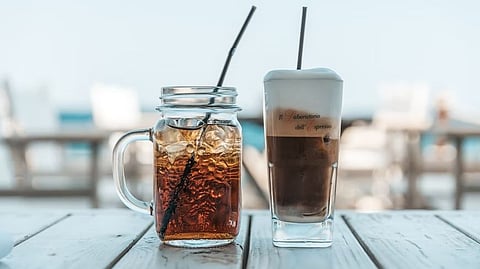In a large study led by researchers at the American Cancer Society (ACS), men and women who drank two or more servings of sugar-sweetened beverages (SSB) per day, compared to people who never drank, had a five percent increased risk of death from an obesity-related cancer, including gastrointestinal, postmenopausal breast, endometrial and kidney cancer.
These results appear to be related to the higher body mass index (BMI) of the participants who regularly drank SSBs. BMI is a measure of body size, combining a person’s weight with their height, showing whether a person has a healthy weight. The study was published today in Cancer, Epidemiology, Biomarkers & Prevention, a journal of the American Association for Cancer Research.


